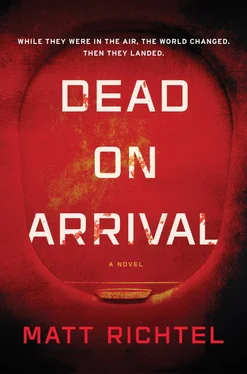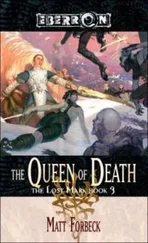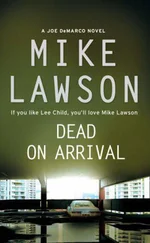“What makes one image or memory stick? What causes it to fade? If you want to be blunt about it”—he was gaining steam—“we’re trying to get people to remember better and share more of the things they see on the Internet.”
“Things?”
“Advertisements. Video, banner, click-thrus, YouTube videos, et cetera. It’s all about recall and sharing, whether they’re taking something viral, like a song or a sell-crafted Nike ad, or remembering the narrative or image of a Lego set, car, washer and dryer. No one liked my idea of calling this project Hippocampus, and then we’d name our headquarters the Hippo Campus.”
Hippocampus, the memory center of the brain.
“Lantern, Jesus.” He shook his head.
Despite herself, she smiled.
“Look, Jackie, it’s not that novel. It’s a neuroscience twist on the basic Silicon Valley business model.”
He stated the obvious: the entire Silicon Valley business model was built on getting people to see and respond to advertisements. Services like Google, Facebook, Instagram—go down the list. They were “free” and, in exchange, they sought attention. Fairly, this was the attention economy, the eyeball economy. And, more recently, the sharing economy; brands, whether corporate or individual, created things to be tweeted, liked, commented on, a fluid, amorphous river filled with baited fishing poles, bobs and flies and lures to be swallowed. Denny glossed over this stuff because it was simply understood.
“What’s new is we figured out how to do it,” he said. “Or we’re figuring out how to do it.”
“That’s the data you’ve had me looking at.”
“I can’t say this strongly enough: I’m not sure we can do this without you. You filter information in a way other people don’t, or can’t. You have an unusually creative way of synthesizing data.”
She studied his face for contradictions and transgressions like a child deciding whether there was still such a thing as unconditional love. She knew how Dr. Martin must have felt sometimes; used. Somehow, he seemed able to navigate it. He dug for truth on his own terms and figured out exactly the right thing to say and do. She could dig, too.
“Why didn’t you tell me before?” No sooner had Jackie said it than she hated having done so; it showed her vulnerability. So she added, “I deserve a hell of a lot better than that.”
“You do, Jackie. But we’re playing around in a gray area of”—he looked for the word—“ethics. I didn’t want to…” Another long pause.
“What?”
“I didn’t want to compromise you or put you in a bad position, or make anyone more vulnerable than they need to be.”
“I don’t need your protection.”
“Come to the desert,” Denny said. “See for yourself.”
“What’s in the desert?”
“You really do have to see it to believe it. Will you just trust me?”
“Just to be clear”—she tilted her head to the side, looking virtually coquettish—“you want me to trust you, despite having lied to me, and to trust a secret project spawned by a multibillion-dollar company more powerful than the government and that only subverts its ‘do no harm’ motto when it suits the stock price?”
“When you put it that way,” he said, smiling, “yes.”
“What’ll it be?” a bartender at a cheesy Irish pub in JFK’s international terminal asked. He had a fresh tattoo on his beefy forearm of a New York Giants helmet that looked red around the edges. Melanie put a hand on Lyle’s shoulder, silently urging him not to get into the man’s diabetes or possible tattoo infection. Lyle flinched.
“Patrón, double, straight,” he said.
“My man,” said the bartender. “Silver, okay?”
Lyle nodded absently; sure.
“Peño…” Melanie said.
“He’s paying,” Lyle responded, gesturing with a jerk of his neck to Michael, the Tanzanian representative who stood near the front of the pub looking at a menu on a stand, giving Lyle and Melanie a wide berth. Michael had thought it would be a grand gesture to invite Melanie, particularly after Lyle had said that a chief reason he didn’t want to make the trip is because he’d just gotten settled in a new place with Melanie.
But the pair had been bickering since San Francisco. Michael was starting to wonder whether Dean Thomas had been right that Lyle was unstable to an extent that outweighed his tremendous value. Michael, standing at the menu, snuck a peek at the picture he’d taken to keeping in his right front slacks pocket. Even though it was a still shot, Michael could picture the man on the ground, panting, as if a dog gasping for breath.
“Make it two?” the bartender asked Melanie as he poured Lyle’s drink.
“I’ll have two. She’s fine,” Lyle said.
“What the hell has gotten into you, Peño?”
Lyle stared at his glass. Melanie exhaled. “I’ll have a seltzer”—she looked at Lyle—“because I want to sleep on the plane, not because I’m taking your shit.”
“Lemon?” the bartender asked.
“Sure.”
The bartender sent a flash of anger at Lyle. This guy had no idea how good he had it. His wife was a knockout. Not like cheerleader knockout, which in the bartender’s simplistic female taxonomy was the top of the food chain, but wife knockout. Her red hair was pulled back in a ponytail and she wore a baggy maroon V-neck sweater that, by contrast, gave her skin a pale tint. Originally, she’d purchased the sweater for Lyle but he’d shrunk it enough in the dryer that it no longer fit in the shoulders.
Lyle drained his shots in two drags. Held the glass up to the bartender.
“Are you still serving food?” Melanie asked.
The bartender pulled a menu from under the counter and slid it forward. “The au jus gets raves. Comes with fries.”
“Perfect. We’ll have two. I’m ravenous,” she said. “Can you put them in before we have another round?” To Lyle: “Like you said, Peño; Michael’s paying. We might as well have a last decent meal.”
“Go home, Melanie.”
“Peño! What the fuck!”
“It’s not safe for you where we’re going.”
“So, Lyle, this is new, this is fascinating.”
“What’s that?”
“You’ve got all kinds of psychological flaws, but being bossy isn’t one of them.”
“There you go, that’s the spirit, Melanie.”
“Jesus.” She’d never heard him like this, not quite. But she had felt it building. For well more than a year, he’d been changing. She just assumed it was because he’d been to one tragedy after the next, one more village, one more filthy apartment building with stricken children; such things would take their toll on anyone. She’d tried to be sympathetic. She knew in her heart what Lyle confessed to her with his eyes: love, real connection, genuine passion—it made up for everything else. Nothing could be more trite but, simply, true, this physician healed himself by feeling connected. Those weren’t words he’d have used. But she knew and he knew she knew. And yet, for all her efforts, he became increasingly beyond reach. She stared at him staring at his glass. “I’d chalk this up to whatever horror is on those pictures Michael’s carrying around in his jacket but you’ve been like this for… weeks.”
“Is that all?”
“No. No, Lyle, you’re right. For six months.”
“Like what?”
“Um, reserved, distant, surly, angry, sullen, terse. Ring a bell?”
Lyle grimaced. Maybe it had been after he returned from that well poisoning in South Korea, an ugly bacteria caused by a local official who had embezzled money intended for sewage treatment and invested it into ounces of gold. A week of sullen behavior followed, then two, then halfway through the third, Melanie, sick of it, went dancing with her friends until 3 a.m. on a Thursday.
Читать дальше












